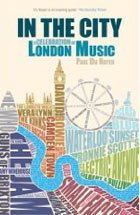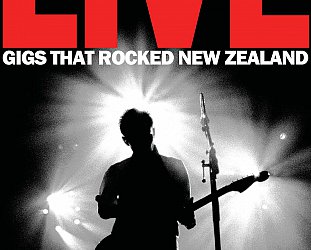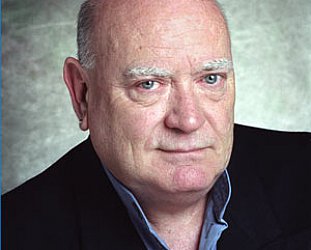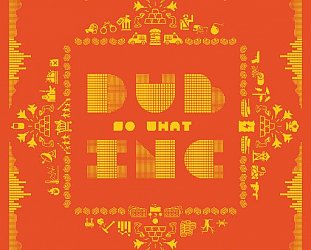Graham Reid | | 2 min read
Noel Coward: London Pride

Some cities are shaped and defined by their soundtrack: Salzburg and Mozart; Liverpool and the Beatles; Seattle and Nirvana . . .
But you don't envy anyone undertaking the task of writing about the music of London given the city's long musical history and its exceptional diversity. Is there a link between the barrow boys of the East End and the Small Faces, between Noel Coward and Suede, between music hall and Ian Dury?
Actually those are the easy ones, as longtime music writer Du Noyer (not a Londoner by birth but, as with so many in this 320 page book, by adoption) proves.
From medieval times and the costers (street sellers calling out their wares in song) through early balladeers, Du Noyer draws the link between street songs such as Dice, Wine and Women from the markets and Ian Dury's Sex and Drugs and Rock'n'Roll.
He weaves in -- by distilled biographies where not a word is wasted -- the lives of music hall entertainers such as Marie Lloyd (100,000 followed her coffin to Hampstead in 1922) and those giants of the theatre Gilbert and Sullivan, through Noel Coward (whose London Pride is the sample track here) and on to Soho and skiffle in the Fifties, Anthony Newley ("a voice that was unapologetically London" and which the young Bowie briefly copied) and so on.
There are digressions into the position of black immigrant communities and the songs they brought, as well as famous buildings which played a key role in the developing story . . . but the bulk of the book takes place after London started to swing in the Sixties. (England and London being interchangeable in Roger Miller's period hit England Swings.)
Du Noyer places the Small Faces directly in the tradition of cheeky closters, deals with the growing "undergound" movements, finds time to include the tragic figure of Graham Bond and the hard-graft Groundhogs as much as Eric Clapton, nods towards those from abroad who found in London a freedom they could not enjoy at home -- be it in the provinces, the distant suburbs (Damon Albarn of Blur, Paul Weller) or America (Jimi Hendrix, PJ Proby, the Walker Brothers) and comes right up to date noting how Dizzee Rascal, M.I.A. and Lily Allen ("a post-punk Marie Lloyd" he quotes from Time Out) are redefining the sound of London in the 21st century.
Astute, concise, acute and highly readable, this chronological account of London's diverse music scenes takes you into old theatres and hip clubs as much as lets those who created the soundtrack of the city have their say, whether it be loving or cynical.
It is, as with all the best music books, one which will have you reaching for old records or wanting to track down some of the more unfamiliar songs -- whether they by Jessie Matthews in the Thirties or the Pretty Things in the Sixties -- and is perhaps best enjoyed with a London A-Z in hand.
Du Noyer writes with affection but isn't blind to how London can spit them out as much as make them famous. Paul Weller, he observes, could write In the City about the promise of this great city, but equally pen the bitter Down in the Tube Station at Midnight.
Like this? Then you should check out The Restless Generation. And this.







post a comment